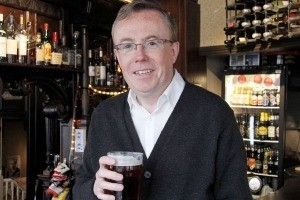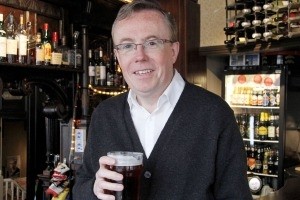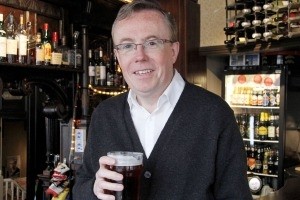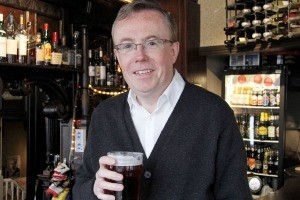The enemy within? War and drink
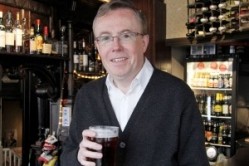
“The best thing, in my opinion, is to punish some of the chief offenders... Take and shoot two or three of them, and the 'Drink Habit' would cease, I feel sure.”
Yes. That would probably work.
Haig, Britain's commander-in-chief in France during the First World War, was chipping in some no doubt well thought through support for his prime minister, David Lloyd-George, who was toying with the idea of alcohol prohibition at the time.
Parallels
The quote comes from a new book I'm in the middle of, Robert Duncan's Pubs and Patriots (p75), which is particularly good on the debates that raged around the drink question during the early months of the war.
Setting an example by shooting drinkers aside, there are parallels to today. Alcohol consumption was already in decline in the years leading up to 1914, as it is now, and there was a similar demonisation of a minority of feckless drunkards in order to push through policies aimed at the general population.
There are differences, too. One is that the enemy then was the public house. This was before supermarkets, of course, and off-licences, or bottle-shops, were part of the pub, but there was little acknowledgement from politicians of the social value of pubs. That's a relatively new idea. Even if it is mostly rhetoric.
There was, though, an interest from moderates in the possibility or reforming pubs along the lines of the Gothenburg System of state-controlled management, and the war government's Carlisle Experiment put that into practice with some success, creating the forerunner of the industry-sponsored post-war 'improved' pub movement.
The most obvious difference, though, is that there was a war on. A proper war, I mean. Not one of those wars where you chuck some stuff and run away.
This was total war, in that it enlisted not just the passive but the active contribution of those on the home front.
Radical measures
In his book Robert Duncan contends that the pressure of the temperance movement in previous decades finally manifested itself as legislation thanks to the context of war. Akin to Naomi Klein's theory of the Shock Doctrine, the suggestion is that extreme circumstances give politicians permission to introduce radical measures. Or, to put it another way, they can get away with things they wouldn't in 'normal' times.
We have seen something of this since the onset of the economic crisis as everything is subordinated to paying off the deficit, and the government complains that 'we' can't afford this or that.
In this context the price tag attached to alcohol harm assumes a greater political pertinence as does the presumed cost to society of individuals who are perceived as drinking rather more than they should.
Errant minority
In 1914 concerns focused, surprisingly perhaps, around the figure of the drunken soldier, a construction, Duncan argues, designed to assert the moral standards required of us all to face the challenge of war (p54).
You would have thought that heroes heading for the trenches might have been allowed a couple of pints as they prepared themselves for a probably early death, but the drink question was bigger than that.
Today's binge drinkers and liver diseased supposedly sapping the moral and economic fibre of the nation may not have quite the same excuse, but the ideological part they play in the politics of alcohol, as the errant minority setting a negative example to us all, is the same.
As is the fact that, really, they are not the enemy within, they are just us.
